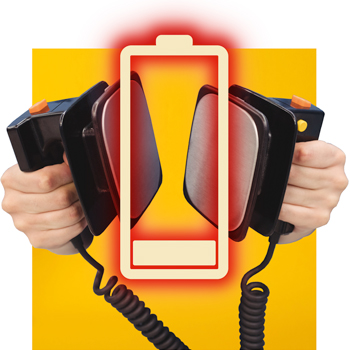
Paramedics have an incredibly difficult and important job. These professionals play a crucial role in providing first response services, which means the life of a patient is often in their hands. But what happens if a paramedic makes a mistake in treating someone at the scene? Even the smallest error can worsen an injury or illness, causing patients to suffer irreparable harm or fatal damages. Here, we discuss the types of laws that affect cases for emergency responders and when a victim may be eligible to file a medical malpractice claim.
What Are the Laws Affecting Paramedic Malpractice Cases?
Making a claim against a paramedic isn’t quite the same as making one against a doctor. Rather than holding the individual responsible, a medical malpractice claim filed against a paramedic would hold the employer for which the paramedic works liable. In every medical malpractice case, the patient must be able to prove that a medical professional acted with negligence, which involves proving a breach of a duty of care.
The most common reasons a first responder can be held liable for medical malpractice include:
- Failure to meet the “standard of care.” Paramedics are legally required to provide an accepted level of quality of care that a similarly skilled and knowledgeable EMT would provide in similar circumstances. Under this standard, medical malpractice laws apply to paramedics just as they do other healthcare providers. A paramedic may make an error in one of two ways:
- An error of omission: This occurs when a paramedic fails to perform a necessary procedure, such as routinely checking the batteries in a defibrillator. In this case, if a first responder were to treat a patient undergoing cardiac arrest and the defibrillator failed because of a dead battery, the paramedic could be liable for negligence.
- An error of commission: This refers to a paramedic improperly or incorrectly performing a medical procedure. An example would be if an emergency responder needed to perform an endotracheal intubation but misplaced the tube into a patient’s esophagus instead of the trachea.
- Negligence. This refers to the failure to meet the legal duty a paramedic owes to a patient. It involves a lack of care or diligence necessary when administering emergency care to a patient, and it may make a paramedic liable for damages, injury and even wrongful death. A paramedic may be held responsible for negligence for:
- Delaying arrival to the scene of an emergency when they could have reasonably arrived sooner
- Treating a patient without the proper training and certification
- Misusing medical equipment
- Performing a medical procedure they are not trained or permitted to perform
- Failing to bring necessary life-saving tools or keep an ambulance fully stocked with necessary medication and equipment
- Failing to check a patient’s vital signs
- Willful action or gross negligence. Depending on the state, some paramedic malpractice lawsuits may be limited to “willful and wanton” conduct or “gross negligence,” which are more difficult to prove in court. A “willful and wanton” standard requires a patient to prove that a paramedic acted recklessly and without regard for the risk of harm. Willful and wanton conduct is not necessarily intentional, but it is more than ordinary negligence. Examples of this would include a paramedic failing to treat a patient for discriminatory reasons or intentionally leaving a patient at the scene of the emergency. Gross negligence varies by state, but is generally the conscious failure to exercise due care. It’s knowing what should be done in a situation and choosing not to do it.
How Can You Prove Paramedic Malpractice in Court?
In order to successfully file a medical malpractice claim against a paramedic, you need to be able to prove that they acted against standard procedure. To prove negligence, you will need to show that:
- The paramedic had a duty of care to you or your loved one to act with vigilance and authority. You will need to prove that the paramedic violated this duty of care by failing to perform to the accepted standards that another paramedic would have in the same situation.
- You sustained injury as a result of a violation of the duty of care. Regardless of the severity of injury, you will need to be able to prove that the paramedic’s substandard care was the primary reason for your injury.
Paramedic Malpractice Lawyers On Your Side
If you or a loved one has suffered an injury due to the negligence of a paramedic, you need a paramedics medical malpractice lawyer. The attorneys at Janet, Janet & Suggs can provide guidance on how your injury affects finances, medical care, and other issues, in addition to legal counsel. Contact us today for a free, no-obligation consultation to discuss your case. We’ll serve as the counsel and support you need, so that you can focus on your healing.
